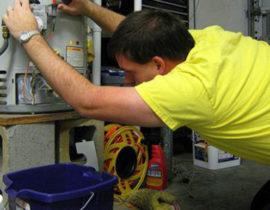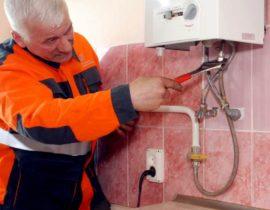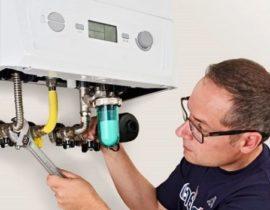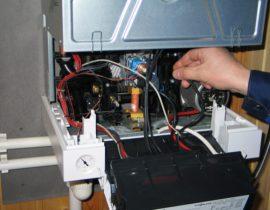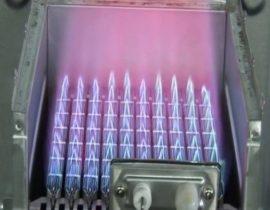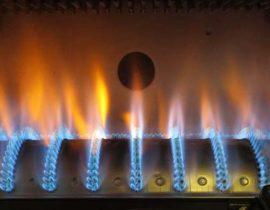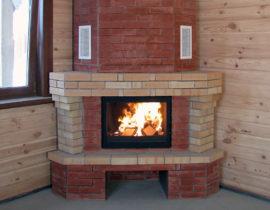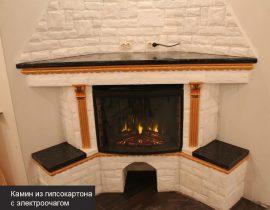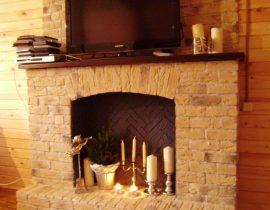Normally, the boiler should work absolutely silently. The appearance of cod, pops and noise indicates the presence faults in his work. The reasons can be very diverse. In each case, an individual approach to solving the problem will be required.
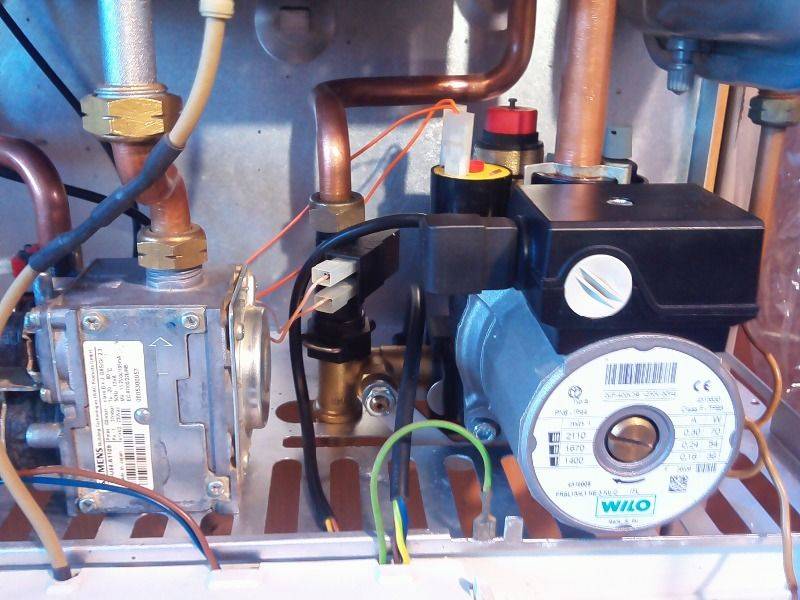
Causes of noise, hum of the boiler
Content
Noise diagnostics
The operation of a boiler with a water heating circuit is often accompanied by noise. It not only brings significant discomfort, but can also be potentially dangerous for all household members. Therefore, this problem should not be left unresolved.
Before identifying the cause of the deficiency, the nature of extraneous sounds should be determined. This will help in diagnosing and increase the chances of successfully fixing the problem.
The most common defects in boilers in the fireplace include:
- quiet knock in the boiler;
- crackling that occurs when the heating system is turned on;
- the regular appearance of a hum;
- vibration;
- intermittent clicks.
All these signs point to the need to correct the problem. If you ignore them, the situation may be resolved by a complete breakdown of the entire heating system.
Possible causes of extraneous sounds
Knocking and clanging in the boiler can cause both indirect and understandable reasons.In the first case, we can talk about a broken installation, wear of nodes and incorrect settings.
The occurrence of extraneous sounds can provoke the following factors:
- Formation of scale layers on the walls of the heat exchanger. This is due to the high amount of salts in the water. To prevent the problem, it is necessary to clean once a year using specialized products.
- Increased pressure in the water pump or its lack in the system. Under adverse conditions, these phenomena lead to an emergency situation.
- Oversaturation with air. In this case, the problem will be accompanied by the appearance of a characteristic knock. To stabilize the situation, it is enough to release excess air from the system.
- Fan failure. This is due to the accumulation of dirt or the drying of grease in the bearings.
- Clogged chimney or wick - a common problem for semi-automatic boilers. Diagnostics consists in checking the presence of traction. To do this, bring a burning match to the ventilation window. If the flame burns evenly, then the mine needs to be cleaned. It is advisable to contact the public services for this purpose.
- Malfunctions in the three-way valve. With this problem, characteristic crackles will be observed with each ignition. To correct the situation, the valve must be replaced.
- Incorrect installation of the gas burner in the boiler. In this case, whistling or tapping sounds will occur. To prevent this problem, you need to compare whether the gas pressure level matches the parameters indicated in the technical data sheet as recommended.
- Violation of the installation technique of the system threatens that sounds of impacts on a metal surface occur in the device case. They are provoked by the expansion of the pipe in the process of turning on the heating system. This problem is typical for pipes immured into the wall without leaving a gap specifically for thermal expansion.
- Clogging of heat exchanger plates with soot and dust. Parts must be cleaned regularly using a specialized vacuum cleaner.
How to prevent noise
To avoid the appearance of extraneous sounds during the operation of the fireplace, it is necessary to ensure timely maintenance of the heating equipment. It includes lubricating parts, removing carbon and dust, cleaning components and controlling the water level. It is equally important to control the gas supply so as not to provoke an increase in pressure.
If you do not control the level of water in the pipes, noise may appear, provoked by water hammer. It is due to the force of inertia, due to which the liquid cannot immediately stop in the pipes.
Algorithm of actions in case of extraneous noise
After discovering why noisy, buzzing boiler, you need to think about a way to eliminate loud sounds. The best option is to seek help from specialists. But some problems can be solved on your own.
It is advisable to rely on the following principles:
- If a whistle is found in the heat exchanger, it should be descaled. To do this, remove the cover and unscrew all pipes. Inside, you need to pour a specialized descaling agent. An alternative cleaning method involves using a flexible hose.
- If the water becomes supersaturated with oxygen too quickly, a closed heating system should be preferred. In this case, it is better to replace the expansion tank with a membrane one, and install air vents on the water heating boiler.
- In cases where the pump power is higher than required by the system, it is necessary to reduce it. To do this, you need to change the position of the white switch, which is located on the terminal block.
- If a suspicious sound comes from a gas meter, then it is advisable to call the gas service. It is possible that the device needs to be replaced.
- When switching on the automatic cotton boiler, it is necessary to clean the ignition electrodes. If necessary, you need to adjust their location.
- Metallic clatter caused by temperature changes is eliminated by rearranging the wall mounts to match their anchor points.
- If the noise is caused by a dirty fan, you need to carefully clean its blades from dirt. It is also advisable to lubricate its bearings. In extreme cases, a complete replacement of the cooler may be required. But this process is best left to professionals.
- Loud sounds during the operation of the boiler often provoke low pressure. This is typical for power outages, water leakage, improper installation of the boiler, etc. Sometimes the problem is provoked by an incorrect calculation of potential loads on the system. To get rid of noise, you need to direct the action to one of the possible causes.
Answers to current questions
Air bubbles get inside for a number of reasons, the most common of which include broken ligament integrity, complete removal of water from pipes, and depressurization of equipment.
The main function of the fan is to remove the residues of combustion products. As a result, it is periodically clogged with dust. Under the influence of high temperatures, its lubricant may dry out. All this together stimulates its wear. Sometimes a faulty fan is a factory defect.
The most common reason for this phenomenon is the formation of scale with the subsequent narrowing of the passage of the device. In this case, whistling sounds appear approximately 20 minutes after the heating system is started.
Rattle appears if the valve in the boiler wears out.
This happens when the injectors are heavily clogged. The problem is solved by turning off the gas supply, followed by cleaning the cavities with a thin wire.
Regardless of the cause of the noise, the problem cannot be ignored. The sooner it is eliminated, the better.
Video review of why there is noise in the boiler

